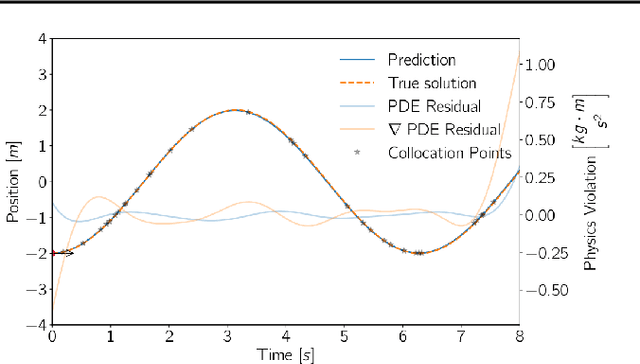How to Avoid Trivial Solutions in Physics-Informed Neural Networks
Paper and Code
Dec 10, 2021



The advent of scientific machine learning (SciML) has opened up a new field with many promises and challenges in the field of simulation science by developing approaches at the interface of physics- and data-based modelling. To this end, physics-informed neural networks (PINNs) have been introduced in recent years, which cope for the scarcity in training data by incorporating physics knowledge of the problem at so-called collocation points. In this work, we investigate the prediction performance of PINNs with respect to the number of collocation points used to enforce the physics-based penalty terms. We show that PINNs can fail, learning a trivial solution that fulfills the physics-derived penalty term by definition. We have developed an alternative sampling approach and a new penalty term enabling us to remedy this core problem of PINNs in data-scarce settings with competitive results while reducing the amount of collocation points needed by up to 80 \% for benchmark problems.
 Add to Chrome
Add to Chrome Add to Firefox
Add to Firefox Add to Edge
Add to Edge